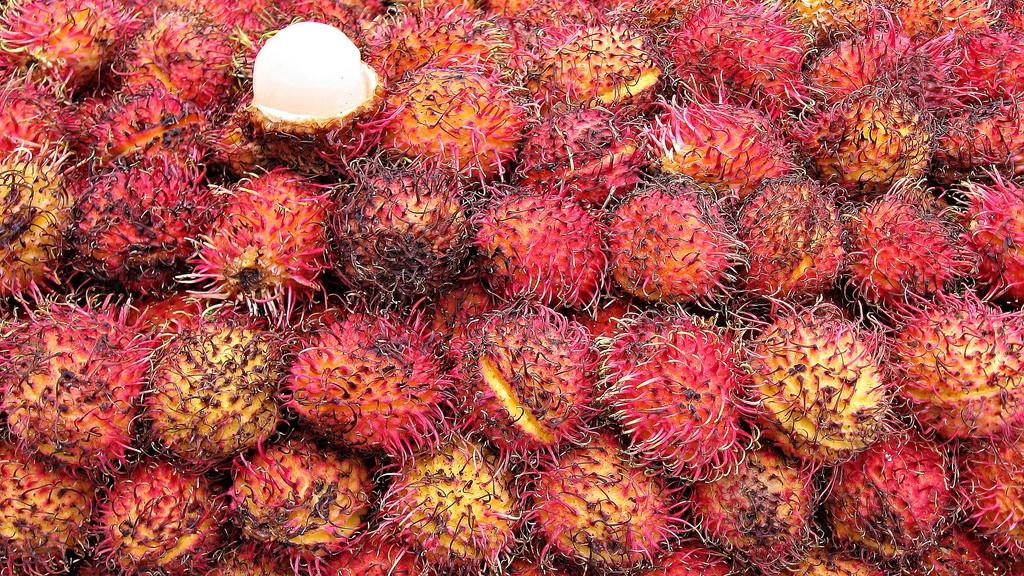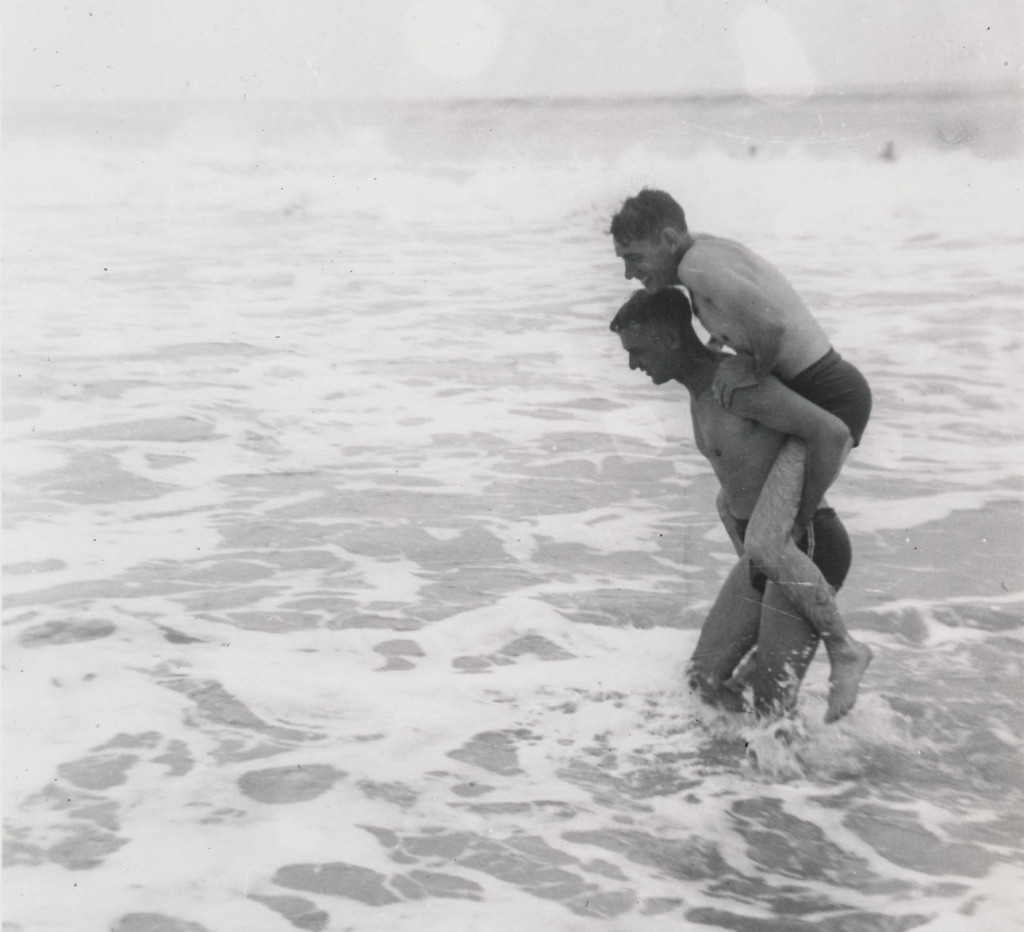Reading Lists
New and Classic Queer Literature to Read for Free Online
15 stories by Sarah Gerard, Igoni Barrett, Bryan Washington, and more from the Recommended Reading archive

For pride month, we’re rounding up some of our favorite stories and novel excerpts by and about queer people from the Recommended Reading archives. These stories present a diverse cross-section of queer lives: an intersex woman who survived the bombing of Hiroshima, a black man in Nigeria who one day wakes up white, a man getting gender-confirmation surgery in Canada, a young girl in Brazil who learns, for the first time, a word that describes the way she feels. There are ends and beginnings of committed relationships, reliable and fraught friendships, painful affairs, and pleasant ones. Not all of the stories are about queer relationships or characters. One is about a hawk. The earliest work is from 1940, the most recent is from April 2019.
Recommended Reading is the weekly fiction magazine of Electric Literature, where we present short stories and novel excerpts every Wednesday, each with an original introduction. This list samples some of the most exciting new work in queer fiction, as well as forgotten classics. The recommendations, by writers including Chinelo Okparanta, Michael Cunningham, Alexander Chee, and Justin Torres, give space for peers to support one another and for the greats in that genre to support a new generation.
“Together” by Jess Arndt
In “Together,” a story from Jess Arndt’s collection Large Animals, a couple contracts an unknown STD at the same time that large, monstrous weeds overrun their yard. As Justin Torres writes in his introduction to the story, it “is a story precisely about the churning going on beneath the surface — about the awful lot going on inside each of us. Arndt reminds us that physically, psychically, we are processes; we are happening all the time. The life of both mind and body is defined by an awesome and constant churning.”
“Little Boy” by Marina Perezagua
“Little Boy,” named for the codename of the atomic bomb that was dropped on Hiroshima, tells the story of H., a intersex survivor of the explosion. In her introduction to the story, former Recommended Reading Senior Editor Lucie Shelly writes, “Drawing on the unexpected juxtaposition of WWII Japanese-American conflict and binary gender expectations, Perezagua explores the power of intangible indicators — feeling, legacy, and sensation — to uproot our logic, identities, and classifications.”
“Alta’s Place” by Morgan Thomas
Cory grew up in DC, works in a dry cleaning business, and wants to work in fashion design someday. Alta grew up in Mongolia, married young, and is negotiating her request for asylum. While both identify as gay women, Recommended Reading editor-in-chief Halimah Marcus points out in her intro, that Cory is too quick to map their lives onto one another: “As gay women Alta and Cory have few experiences in common…When Cory came out to her family, her mother was pious and deflective. When Alta’s landlord in Sharyn Gol found her in bed with another woman, he kicked her out. For Alta, coming out was not a consideration. ‘Your mother didn’t ask if you were gay,’ she says to Cory. ‘No one asked you.’”
“Pussy Hounds” by Sarah Gerard
“‘Pussy Hounds’ by Sarah Gerard is a story about four friends who take a trip to Maine for a self-imposed writing retreat. As it happens, not much writing gets done. One of them isn’t even a writer to begin with. They go for walks, watch movies, gossip over dinner. Their delicate social accord is threatened by a mysterious ‘back massage incident’ that occurred years-prior. Nina, the narrator, has recently escaped a toxic marriage. Filtered through her inner life, the story is also about making art, gender and sexual identity, self harm, and abuse. ‘Pussy Hounds’ is not, despite the title, a story about chasing pussy, though pussy does play a part.” —Halimah Marcus
Blackass by Igoni Barrett
“Despite its Lagosian setting, when reading the opening pages of Igoni Barrett’s witty, socially insightful novel, Blackass, I am reminded of Kafka’s The Metamorphosis: a young man wakes up to the realization that he is no longer who he once was, but has become a different kind of ‘being.’ In Barrett’s version, the young man goes to bed a black man and wakes up white. The family set-up is the same: the young man, his sister, his mother and father. A job on the line.” —Chinelo Okparanta
“Hiddensee” by Michelle Hart
“Michelle Hart’s ‘Hiddensee’ is about a young woman’s affair with her college professor. Perhaps it’s worth noting the obvious: that this isn’t the story of a vulnerable girl and an older man. It’s the story of a girl and a woman, of a girl becoming a woman over time, and in moments, of a woman becoming a girl.” —Halimah Marcus
Two People by Donald Windham
Donald Windham’s novel about a Roman affair between two men is a classic to Brandon Taylor, Recommended Reading Senior Editor. He writes,“On its surface, Two People is a simple story. Forrest, a man unmoored in Rome by his wife’s sudden departure after a long period of dissatisfaction, takes up with a young Italian male prostitute. The writing is spare and lucid, with a kind of keen emotional intelligence that arrives with all the suddenness of a spring shower. Windham is a master of accumulating seemingly inconsequential details that crest into something true and deeply felt. There is great style in his pages, a quiet elegance. It’s easy to give yourself over to his storytelling.”
“Flor” by Natalie Borges Poleso
“Amora, the collection from which this piece is taken, contains narratives that remain mostly absent from Brazilian literature. Stories of women loving women, wanting women, having their hearts broken by women, getting into confusing amorous entanglements with women. There is a single definition for amora in the Portuguese dictionary: the fruit of a blackberry or mulberry bush. A berry in other words. But here, amora appears rather as the female form of amor, or love, in all its multiple manifestations.” —Julia Sanches

“You Wouldn’t Have Known About Me” by Calvin Gimpelevich
This spare, lyrical story follows the narrator over a few days as he undergoes gender-confirmation surgery in a Canadian clinic. The story is attentive not only to all the ways a body is made and unmade, but also to discomfort and unease of shifting human relationships. It’s a taut story about bodies, healthcare, wealth, and the ways we look after ourselves and others.
“Lot” by Bryan Washington
“The title story of Bryan Washington’s collection Lot is about one family’s negotiation with gentrification in Houston. The unnamed narrator, whose sister has married out and whose brother has gone to war, tries to keep the family restaurant alive, despite the memories that haunt him there. As Aja Gabel notes in her introduction to the story, “‘Lot’ is part of a constellation of connected stories that span this collection, a kind of epic in episodes. At this point in the narrator’s life, the explosive potential of change tremors under his surface, in both his body and mind. The consequences of acknowledging the slow cracks in his life are massive, but ‘Lot’ deals with those fissures with a high-wire combo of precision and tenderness.” —Aja Gabel
“Sundays” by Emma Copley Eisenberg
“For a story that’s about sex six days a week, there’s something prayer-like, even Biblical, about Emma Copley Eisenberg’s “Sundays.” Jeffrey, a scientist, is Mondays and Thursdays, Lamya, a Muslim marine biologist, is Tuesdays and Wednesdays, and polyamorous Beth, who lives in North Carolina with her primary partner, is Fridays and Saturdays. Six days, three different people to love or desire.” —Halimah Marcus
“The First Summer” by Matthew Griffin
For queer people, quite simple acts of intimacy and love (such as sleeping in a bed together or even casual physical affection) can carry heightened tension and fear. In his introduction to this excerpt from Matthew Griffin’s excellent debut novel, Stuart Nadler writes, “It is exhausting to have to write that fiction like this should not feel as brave and important and transgressive as Matthew Griffin’s Hide feels, and that an honest, emotionally complicated, lushly beautiful depiction of two men who have spent their life together, and who are about to encounter death, should not feel so refreshing and so necessary. But the times, sadly, do not always dictate our literature. So, along comes a book like Hide — a first novel, a Southern novel, a novel about love and death and the terror of discovery — that does what all the best fiction seeks to do, which is that it shows its characters as humans.”
The Pilgrim Hawk by Glenway Wescott
Michael Cunningham calls The Pilgrim Hawk, originally published in 1940, an “invisible classic,” which hardly anyone had heard of when NYRB Classics reissued it in 2011. If The Pilgrim Hawk is an invisible classic, then Glenway Wescott is an overlooked legend—an openly gay man, born in 1901 in the midwest, who moved to Paris with his partner in the 1920s. In his introduction of The Pilgrim Hawk excerpted in Recommended Reading, Cunningham muses, “How did [Wescott] produce a book that encompasses fundamental human issues like domesticity’s capacity to be both life-saving and soul-destroying; the annihilating but animating powers of lust and jealousy; the secret war between social classes; and aging and mortality themselves, among many others?”
“Hello Everybody” by AM Homes
With her many novels and short story collections including This Book Will Save Your Life, The End of Alice, May We Be Forgiven, and The Safety of Objects, AM Homes is one of the greatest writers working today. “Hello Everybody” was published in Recommended Reading in 2012 and was included in Homes’s 2018 collection Days of Awe. Like much of her work, this story examines capitalism’s effects on the family with her signature blend of satire and empathy. In her introduction, Halimah Marcus writes, “When you’re young, when your world is sheltered and your options for exploration limited, even a visit to a friend’s house becomes an anthropological expedition; each family, an as-yet unknown tribe. Here [that tribe is] the “pool people,” an L.A. family who lives for air-conditioning and calorie-counting, for whom a bathing suit is a uniform but who hate getting wet.”
“Between Your Heart and the Fabric” by Mattilda Bernstein Sycamore
“In this excerpt [from the novel Sketchtasy], we find the protagonist Alexa reading a book, Rebecca Brown’s The Gifts of the Body, with a sometimes lover, Nate. As they read together, Alexa tells us, “I’m thinking about this shame we all carry, the shame that means we deserve to die.” Sketchstasy is a call to reject the norms dictated to us by those who would never care about us but insist on telling us how to live — or die — as a way of obtaining the approval that will never come. It’s also a call to reject even the imitation of those norms. As a writer, over three novels, a memoir and five anthologies, Sycamore is someone who has always wanted revolution more than acceptance, and dreams that maybe that could be the best party of all. And this novel is her grand masked ball.” —Alexander Chee






















